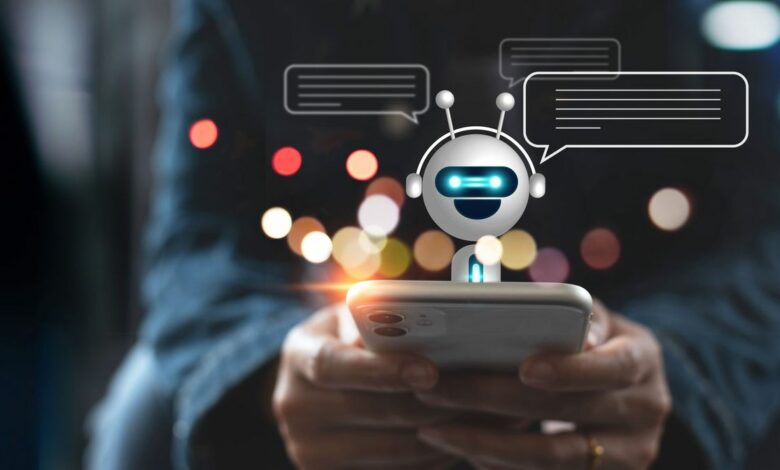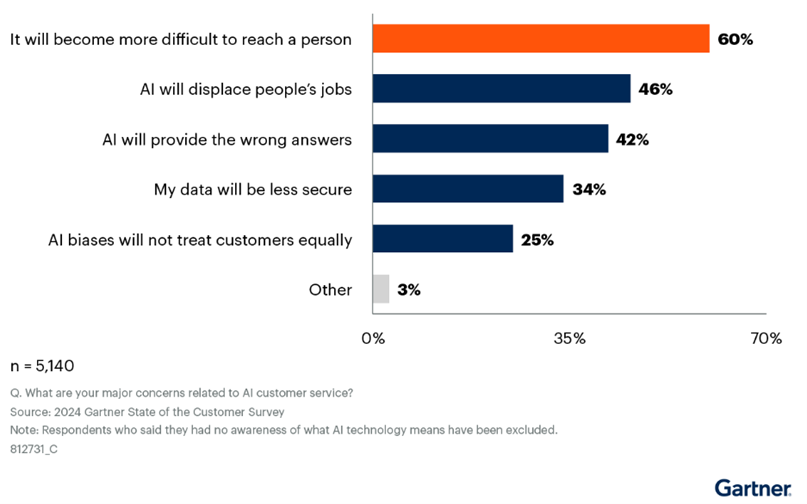Survey Finds Most People Would Rather Switch Companies Than Do Business With AI Customer Service

You may have noticed that some standard automated customer service systems have been replaced by more advanced AI assistants in recent years. However, more conversational interactions and other developments aren’t very popular, according to a new study from Gartner. In fact, 64% of customers would rather not see companies implement AI in their customer service functions.
The survey, conducted in December 2023, included 5,728 respondents. Businesses that flock to AI platforms to replace or augment their customer service setups may be met with a poor reception, and those hoping it will solve customer service issues may actually find themselves driving people away. Just over half, 53%, said they would consider switching to a competitor if they learned a company was using AI for customer service.
“Sixty percent of customer service and support leaders are under pressure to implement AI in their roles,” said Keith McIntosh, Senior Principal at Gartner Customer Service & Support Research, in a rack“But they can’t ignore concerns about using AI, especially if it could mean losing customers.”
Consumers are concerned that AI advancements will only exacerbate the difficulty of reaching human agents, with 60% of respondents citing fear that AI will make it harder to reach a human agent as their top concern. The fear is that AI, while efficient at certain tasks, may fail to provide the personalized and empathetic responses that human agents provide.
“Once customers have exhausted their self-service options, they’re ready to connect with a human,” McIntosh said. “Many customers fear that GenAI will simply be an obstacle between them and an agent. It’s up to service and support leaders to show customers that AI can streamline the service experience.”

Customer service bad
As seen above, another major concern is the potential for AI to replace human jobs. With 46% of respondents worried about job losses, there is a clear fear that AI could replace human roles, leading to increased unemployment in the customer service sector.
Additionally, 42% of respondents are concerned that AI will provide incorrect information. This concern highlights the potential for AI systems to misunderstand or mishandle customer queries.
In addition to the immediate interaction issues, 34% of respondents cited data security as a major concern. Integrating AI into customer service involves handling vast amounts of personal data, raising concerns about how securely that information is managed. According to Gartner, there are solutions, but they are not quick fixes.
“Customers need to know that the AI-infused journey will deliver better solutions and seamless guidance, including connecting them to a human when needed,” McIntosh said. “For example, AI-infused chatbots should communicate to the customer that they will connect them to an agent in the event the AI can’t provide a solution. It should then seamlessly transform into an agent chat that picks up where the chatbot left off. This way, the customer can be confident that they can find their solution efficiently while using the AI-infused channel.”
The appeal of AI customer service to businesses in terms of cost and potentially better use of human employee time is clear. The vision of happy customers for less money has already driven much of the development and implementation. But if Gartner’s research from seven months ago is applicable today, and on a national or global level, these may be short-lived projects, and we’ll all go back to immediately pressing 0 to get a human agent to avoid automated menus.




